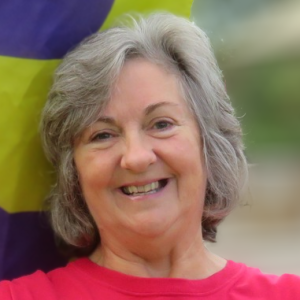From well before the time of the ancient Egyptians the value that books and reading offer humanity has been very well understood. Pharaoh Ramses II was so aware of this his library had the words ‘The house of healing for the soul’ inscribed above its entrance.
Eight hundred years later, the great philosopher Aristotle understood that literature and reading offered healing to human minds and bodies. In more modern times Shakespeare, through the words of Titus Andronicus, says “Come, and take choice of all my library, And so beguile thy sorrow…”
Then, towards the end of the greatest conflict our world has ever known, battle weary WWI soldiers took comfort and strength from reading material provided for them in veteran hospital libraries across England.
Accounts from that era show that soldiers diagnosed with shell-shock, now better understood as post-traumatic shock disorder, would begin talking to doctors about their war experiences and their feelings after reading literature such as Shakespeare and classic poetry.
In the words of British academic and bibliotherapist Sir Jonathan Bate: “Over the centuries great poets return to the themes of love and death and memory and it is often through their poetry we realise we are not alone.”
Bate advises that words have the power to “act like drugs” and that literature and poetry are able to help and support many people in all sorts of challenging circumstances, including anxiety, depression, heartbreak, sadness and grief.
Connecting with words and images in literature and poetry shows us that others have lived through similar experiences – long before we were born. This realisation often brings the understanding that ‘this, too, shall pass’.
It is no surprise then that Bate recommends using literature and poetry to tweak the memory and reawaken remembrances of childhood joy: of happy days and beautiful places, of loved ones we have lost, or feeling at peace and at one with the natural world.
And while facilitated shared reading groups in the UK, US and Australia are able to choose from the wealth of classic literature and poetry, it is not surprising that each nation will also select work from its own writers and poets.
When considering Australia’s aged care residents and the theories supporting bibliotherapy and facilitated shared reading group programs, it is no wonder that the words of Henry Lawson, Banjo
Patterson, Steele Rudd and others bring the joy of recognition to many faces.
I found when presenting Dorothea Mackellar’s much loved poem My Country in retirement villages and residential homes that faces lit up and many residents recited the poem. Interestingly, many of them had not heard or thought of this poem since their school days, so it had been deep-seated in their long term memories.
Recalling this poem and their school days triggered many other memories for residents and these were then discussed with the writer and with other residents, carers and family members for days afterwards. The individual and social capital benefits from live performances as discussed in the article ‘Words Move Minds’ (see references) are definitely transferable to facilitated shared reading group activities.
Unsurprisingly, and beneficially, facilitated shared reading group programs are now becoming more and more popular for people living in retirement villages and residential homes in the UK, US and Australia.
Similarly, many community organisations also include facilitated shared reading groups in their activity programs for people of all age groups.
A facilitated shared reading group enables its participants to listen and respond to the novel, poem or short story. Importantly, individual responses do not have to be shared with the group leader or any or the group’s members.
When people experiencing anxiety, depression or social isolation are part of a facilitated shared reading group, there is no pressure for them to comment on the text or share their responses to it.
Listening to a group discussion or other group members’ comments may even affirm their responses to the reading or provide another point of view for later reflection.
Susan McLaine, in her paper ‘Bibliotherapy: Reading for Wellbeing in Old Age’, describes shared reading group response as:
“The group members then respond to what they have listened to. For some, this may be to voice their thoughts; for others it may be to just think thoughts. There is no pressure for anyone to speak and, at times, the members of the groups share an undemanding silence. It is an opportunity to be with people without the pressure of the expectation of having to interact.”
Facilitated shared reading groups offer older people opportunities to reconnect with and respond to memories and past experiences. Remembering childhood experiences, times of loss or sorrow or times of great joy and happiness can be the catalyst that triggers a higher sense of self and increasing social connection with others. This, in turn, can result in decreasing episodes of anxiety and depression leading to improved mental health and wellbeing.
The mind is one of the most personal and precious aspects of our being. As the body ages so too does the mind.
Good mental health and wellbeing is just what our older people should be experiencing in this stage of their lives. Bibliotherapy and facilitated shared reading groups are an essential part of providing this for them.
Nerelie Teese has been an educator for more than 25 years and now provides bibliotherapy services for older Australians.
References:
Bate, J. 2016. Books do furnish a mind: the art and science of bibliotherapy. The Lancet. Vol 387 February 20, 2016.
McLaine, S. 2012. Bibliotherapy: Reading for Wellbeing in Old Age. Alzheimer’s Australia Dementia Forum 2012 Melbourne, Australia.
Teese, N. 2013. Words Move Minds. Bush poet’s live performances bring excitement and social stimulation to residents. Aged Care Insight. November 2013.

